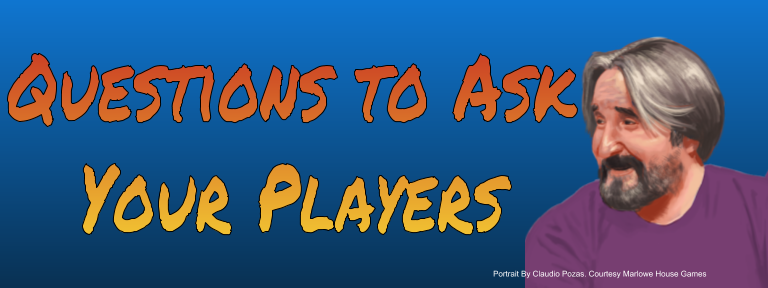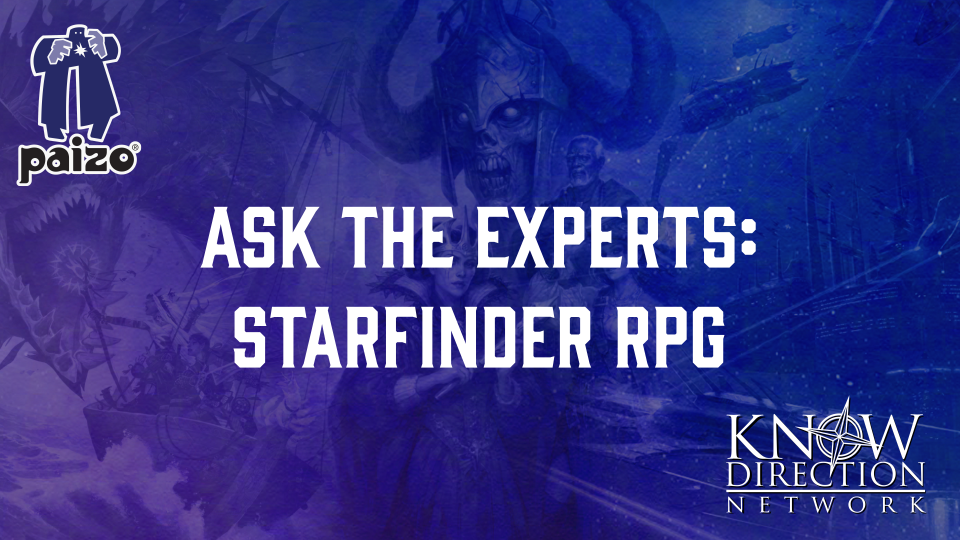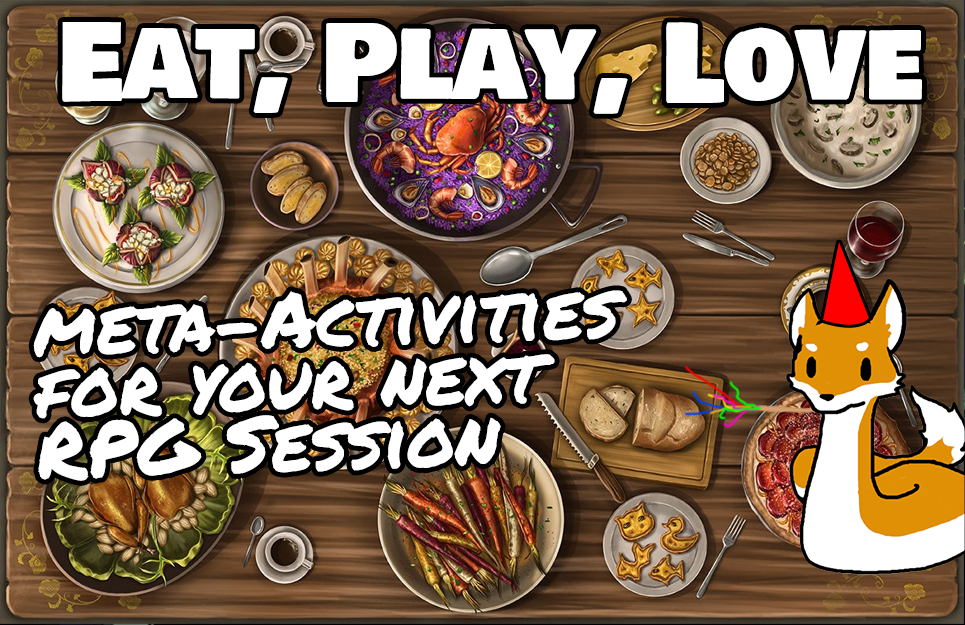Recently, at work, I was given a piece of management advice that translates well to the game-table, “Be curious. Ask questions instead of just providing answers.” In management, this means, rather than just telling your employees what to do to fix a problem you ask them what they think a good solution would be. This increases their investment in the solution. The same theory works at your game table.
Instead of telling your players what is happening in a scene you can instead ask questions. Not only will you often be surprised by the directions events go your players will be invested in what happens next. This is a great tool for improvisational play when your players take an unexpected turn and torpedo your plans for the session. You ask a few questions and suddenly the story is moving again. This is also a great technique for exploring character backstories. Especially if, like me, you have a player who has to play the character for a bit before she gets to know the character’s history. A lot of my wifes character backgrounds have to form organically during play. Asking the right questions helps this process along and has resulted in some amazing stories.
Sometimes, instead of planning a session I’ll start with a scene and a few direct questions and see where the adventure takes us.
So what questions should you ask at the table?
There is no right answer to this question except to say they should challenge the player and in turn invite them to challenge you. They should also either advance a story or inject conflict or drama. To that end I offer you a selection of sample questions and suggestions on how they might be used.
A thief has slipped close and picked your pocket. What small or personal item did they take? What problems does the loss of this item cause? Make sure the player knows the item stolen need not be something on the character sheet but can be an item from their backstory, something they’re holding for an NPC ally or patron. It can even be something they stole first between this session and the last. The item stolen is less important than its impact on your story. You’ve asked your player to create their own Macguffin.
Imagine your player says it’s an engagement ring he’s waiting to give his beloved and that it’s a family heirloom. Maybe it’s the bank note the PCs employer tasked them to collect. The fact that the employer is a crime kingpin not known for forgiveness certainly complicates things.
Wandering the halls of a creepy old mansion your character sees an unsettling statue. What does the statue look like and why does its appearance fill your character with dread? This is a great set up during a horror investigation. Rather than trying to imagine what will frighten a player’s character you ask directly. Additionally, the follow up question gives you a chance to explore the elements that frighten the character in subsequent scenes.
This is one of the few questions you might want to repeat with each PC. Likely not the same piece of art or even in the same scene but when stretched out through the adventure you can ratchet up the tension as each character’s fears are revealed and explored.
You turn a corner and see a familiar silhouette from behind. Who would you most want to see right now and why? Maybe the player says he’d like to see his estranged brother that’s been missing for the entire campaign. As the GM you can tell the player that while the figure isn’t his brother. It is a childhood friend who was close with the brother the last the PC knew.
What if the player says they want to see the campaign’s big bad so they can get the drop on them from behind. You might turn the tables on the PCs expectations and agree it is the person they believe is the villain is in the alley. As the PCs close in on the villain they fall to their knees pivoting as they tumble down. Red blood pooling in copious amounts. The villain who was more powerful than the PCs has been killed by someone even more powerful and now the PCs don’t even know who they’re pursuing anymore.
An old contact warns you someone’s in town to settle a score with you. Who’s coming for you and why? This one is pretty straight forward and self-explanatory. However simple it seems it can still be very interesting. That’s much of the fun of this sort of improvisational GMing: The constant surprise.
When a player is particularly clever with an answer or sets a truly entertaining complication in their own path consider offering them a small reward such as a few XP, a hero point, inspiration or some other in-game meta-currency that rewards them for their creativity.







